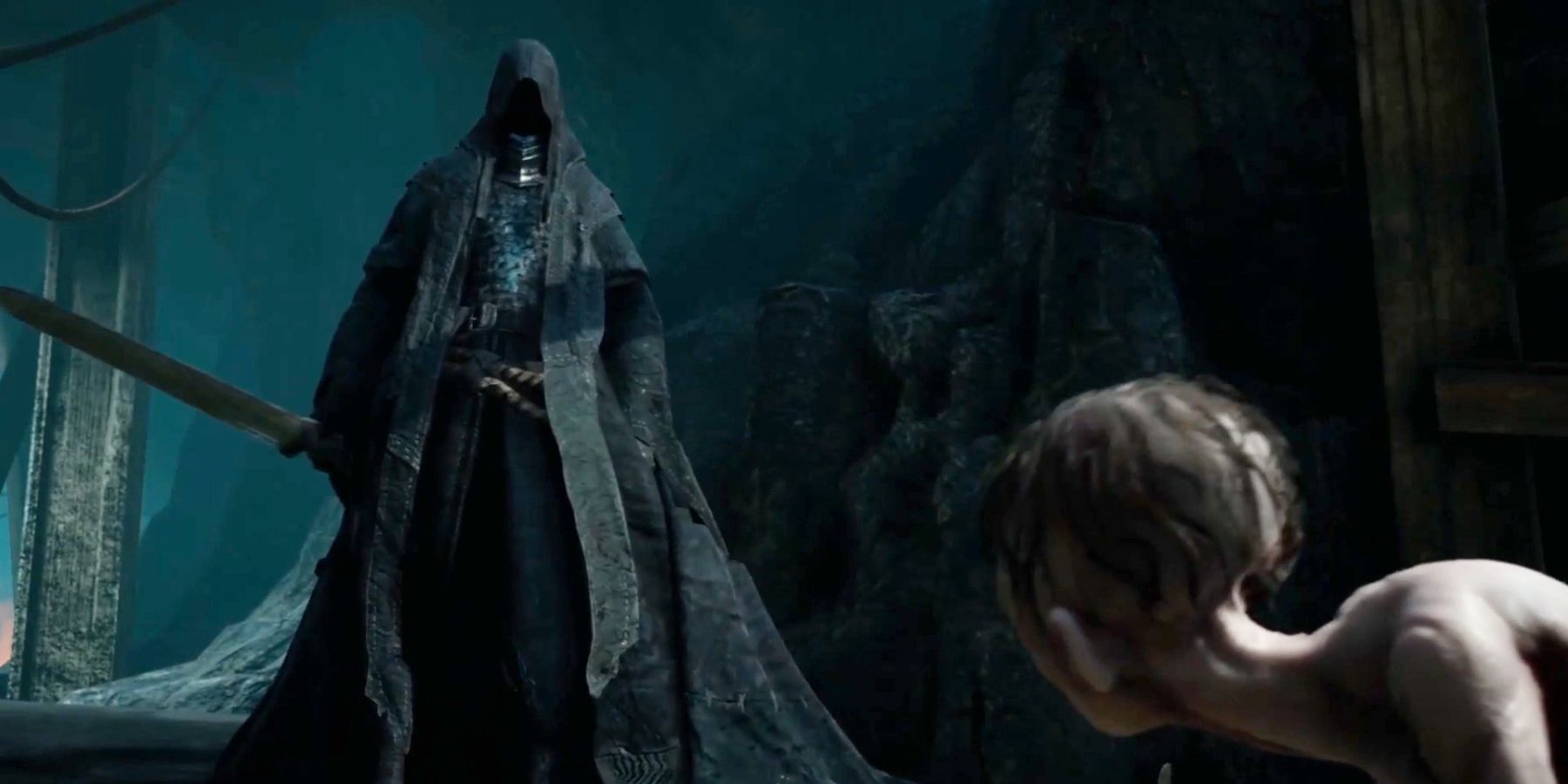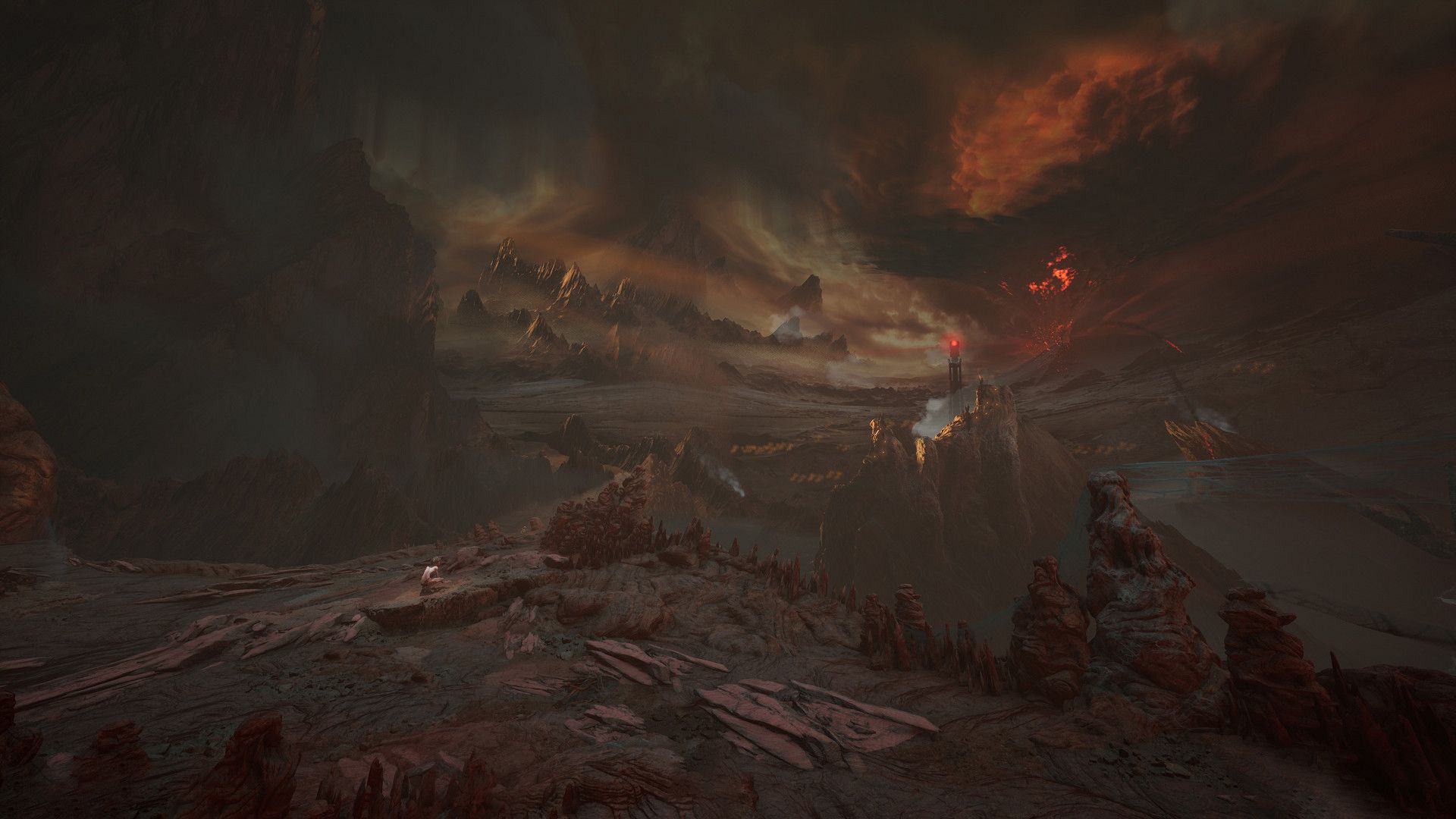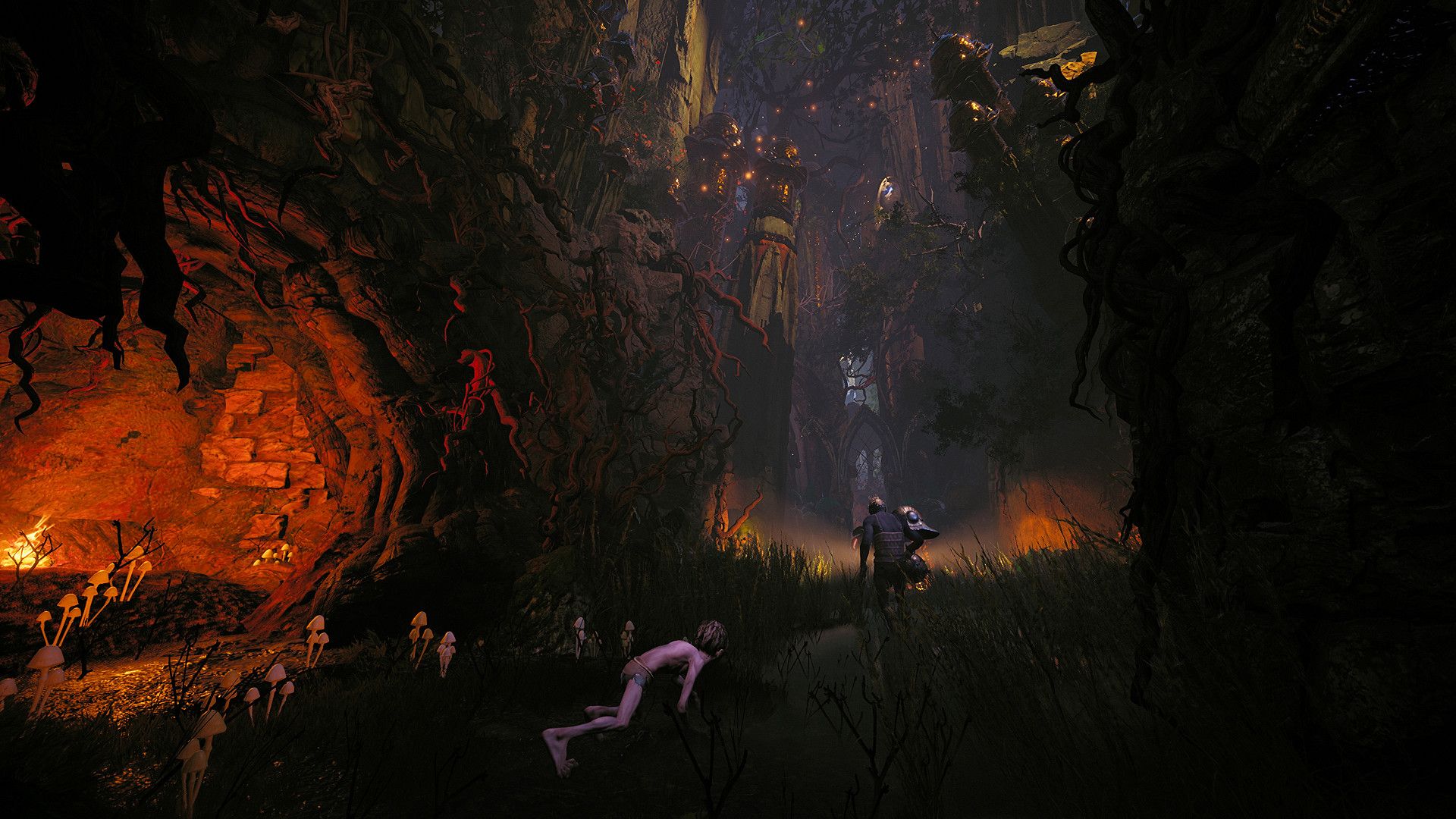The Lord of the Rings is a seminal fantasy franchise with an enormous J.R.R. Tolkien legendarium to fall back upon for lore and inspiration. Characters including Aragorn, Gandalf, and Frodo have all become iconic due to the amount of times they are on-screen throughout The Lord of the Rings’ trilogy. However, Peter Jackson’s work has also somewhat discredited the source material given how much fans rely on the IP’s theatrical run over Tolkien’s original novels.
The Hobbit trilogy demonstrated that spreading a single novel into three movies was a poor decision, and introduced the idea that The Lord of the Rings and its iconography is more a lucrative IP to be exploited than anything else. Amazon’s The Lord of the Rings: The Rings of Power was bold enough to carve its own path and deliver on content that has not been covered before, but The Lord of the Rings: Gollum is treading on iconography known to fans without much new to speak of, which could be its downfall.
The Lord of the Rings: Gollum Needs More Than Its IP to Stand Out
Because The Lord of the Rings: Gollum features instantly recognizable characters and locations, it is easy to assume that the premise was decided upon for the sake of brand identity. If true, this could just become a cheap game idea without some other kind of power fantasy hook that fans would like to see, akin to Monolith Productions' Shadow games.
It is unclear which parts of the license were offered to Daedalic, or what the original pitch for Lord of the Rings: Gollum was, but Gollum has never really a character whom fans have strongly desired to play before. Likewise, Gollum’s narrative has already been told, making the prequel narrative in The Lord of the Rings: Gollum redundant. Players will know precisely where Gollum ends up at the end of the story, which could easily result in choices feeling insignificant since that outcome cannot be canonically rewritten.
If The Lord of the Rings: Gollum was stripped of the brand name, one could argue it's just a banal-looking stealth game with the only stand-out mechanic being its inner-dialogue morality system. Though if choices are not dynamic and engaging, this mechanic too will pale in comparison to games that have better encouraged player choice.
Gollum Might Be a Bad Sign for The Lord of the Rings’ IP
If Gollum is a worst-case scenario for fans, it might foster fears that The Lord of the Rings’ upcoming games would all become banal reflections of their favorable movies, rather than fantastic titles expanding upon a larger-than-life IP. Games such as Star Wars Jedi: Fallen Order and Hogwarts Legacy have demonstrated how an IP can churn out games that are wholly original and fresh while being a part of a massive franchise.
By contrast, The Lord of the Rings: Gollum doesn't appear to have nearly as much personality and originality that those other IP-branded games offer. Of course, Daedalic could pleasantly surprise fans, but The Lord of the Rings: Gollum’s latest preview suggests the game likely won't be a huge blockbuster success akin to Hogwarts Legacy. Hopefully future adaptations in The Lord of the Rings’ IP dodge this same fate.
The Lord of the Rings: Gollum will release on May 25 for PC, PS4, PS5, Switch, Xbox One, and Xbox Series X/S.



